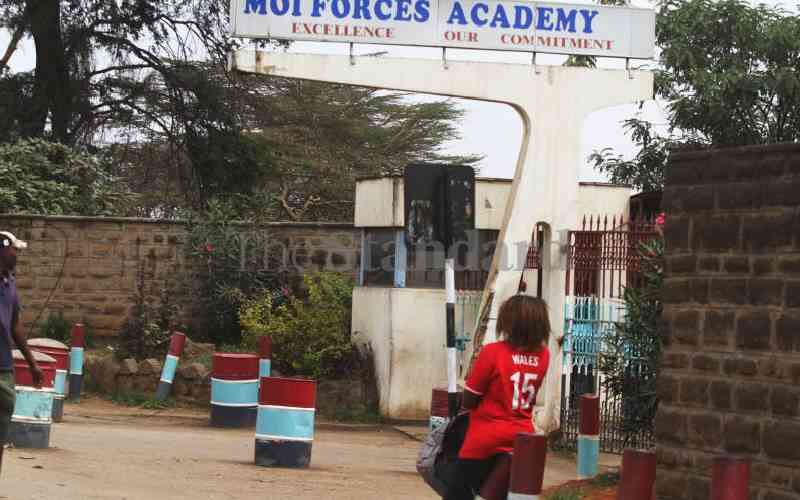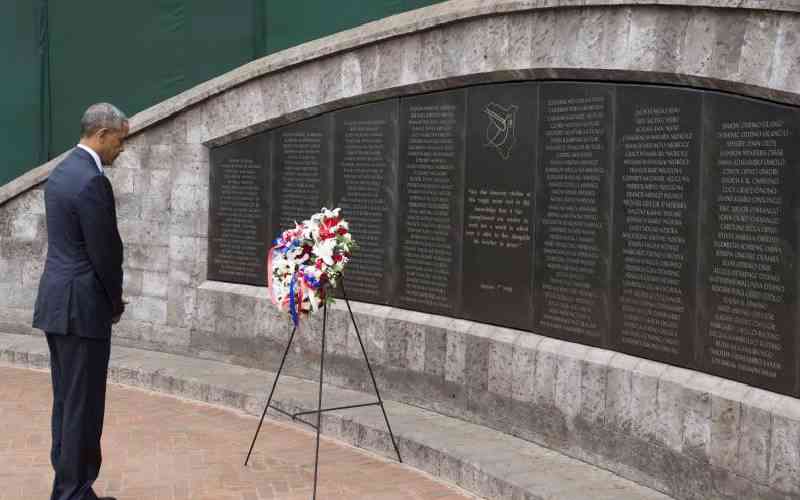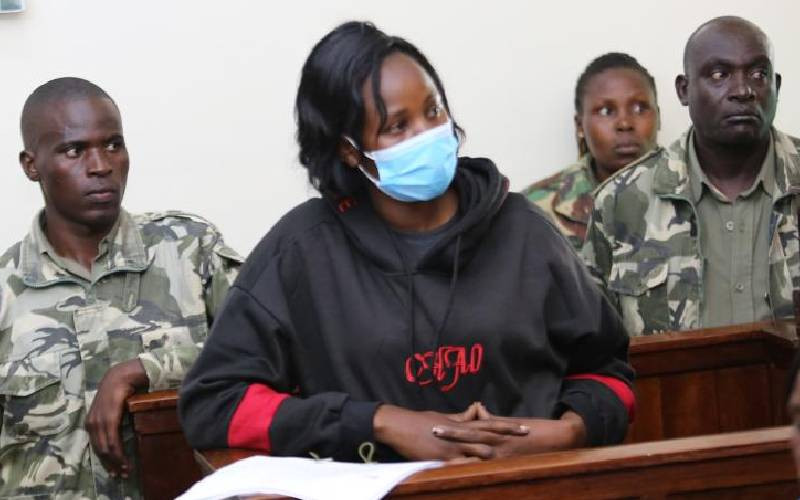By Barrack Muluka
Titus Adung’osi was a good Christian boy. He did not like trouble and he encouraged everybody else to steer clear of trouble. That was precisely why we elected the third year design student to the chairmanship of the university student’s union, late 1981. Tito, as we called him, was our project. Now in the final year, we were weary of unending cycles of strikes and abrupt closures. Our first encounter had been something of fun, in October 1979. The bone of contention was the barring of George Anyona and ex-KPU detainees from contesting the General Election, due in December that year.
We freshers were immensely elated to storm the streets of Nairobi with pseudo revolutionary chants. “A people! United! Shall never be defeated!” In the lead was Rumba Kinuthia. Mukhisa Kituyi, Otieno Kajwang’ and a number of other leaders festooned him. They were all shown the door the following morning. The Government banned the student organisation, for a simple demo.
They sent us home, on “early Christmas.” They also said we should go home to vote. The elections would, of course, not come until two months later. They even gave us some money, to make our holiday comfortable. It was the start of a confounding series of increase of student allowance. We called it boom. They raised it every so often, seemingly to buy our loyalty.
Student trouble, however, went on unabated. We protested against just about anything, anywhere – everywhere. From Nairobi to Johannesburg, to Kabul, Moscow to Washington, our antennae were on the qui vive. Now it was the doctors’ strike – as early as then, doctors were asking for better pay. We protested against Ronald Reagan and Margaret Thatcher’s misnomer of ‘Constructive Engagement” with Apartheid in South Africa, the proxy wars in Angola, Mozambique, Afghanistan – and indeed the Iran-Iraq War. We thought the hostage taking in Tehran in 1979 and the overthrow of the Pahlavi Dynasty was a good thing. Some even celebrated the assassination of Egypt’s Anwar Sadat by his military. Sadat was seen as a traitor to the Arab cause. We screamed slogans against Israel and Zionism.
For this, the Government alternated between increasing our boom and closing the university. In all, however, we were simply having fun. I doubt that any amount of boom or university closures would have made us relent. But 1982 was a different year. We had been around for far too long. We wanted to go away. Jobs, families, the good life – this was now our new focus. We wanted to get done with our final exams. The enthusiasm of joining the fountain of knowledge a few years ago was now replaced with a sense of ennui, a certain languid longing for the unknown.
We did not want any more trouble. That was why we schemed to elect Titus Adung’osi to our newly resurrected and renamed student government. He was “a safe pair of hands.” He would make peace with the Government and give us safe passage to the world.
It was not to be. The Government was itself getting increasingly draconian. The year before, Kenya had hurriedly become a one party state – in just one afternoon! It was also the year of the infamous Andrew Muthemba treason case. This man, who claimed to be related to then Minister for Constitutional Affairs, was accused of plotting to overthrow the Kanu Government. The drama ended in nothing of significance.
However, if the Muthemba matter was all hot air and drama, there were real serious issues. Kanu was suffocating Kenya. You veritably felt yourself unable to breathe properly each time a top politician spoke. They were all Nyayo people, condemning someone, calling for their arrest, their detention. There was talk of informers everywhere. You watched over your shoulder all the time. You did not even trust friends. They said some of the students were policemen in disguise. Lecturers began fleeing for dear life. Kimani Gecau left. Micere Mugo, our dean, went away. Anyang’ Nyong’o took off. Willy Mutunga was detained. A cloud of fear masked the place. It spread from the university to the outside world and from the outside to the university. Every Friday, the newspaper’s front page announced something dreadful. Mutunga Detained. Mureithi Detained. Khaminwa Detained.
It was a hopeless cause, it seemed, trying to be good – to just stay safe for a few more weeks and leave. The Minister for Higher Education, Joseph Kamotho, was talking of introducing fees, doing away with student accommodation and introducing national youth service for pre university students.
Tito was accused of cowardice and complicity with the Kanu Government. There were leaflets everywhere, saying he had been bought. With just about five weeks to go, he led a delegation of goodwill to State House. Others were a Mr Isaac Rutto and a Mr Nyamweya.
That was it. The first years and second years pushed Tito into the defensive. Was he for the students or for the “imperialists”? Suddenly the tame rabbit became a lion. Tito traversed the campuses, addressing kamukunjis against oppression, Kamotho, National Youth Service and all that. Even those of us who thought we knew him could not tell what had come of him.
Little did we know that other storms were brewing. On Sunday August 1, 1982, we woke up to the voices of Swaleh Athumani Mumina, Leonard Mambo Mbotela, Pamela Mburea and Raphael Tuju telling us at gunpoint on the Voice of Kenya Radio that the Government was now under the military.
The rest was a tale of disaster. I shall probably talk about it, some other day. Maybe. Just maybe. But I survived walking over dead bodies all over the streets of Nairobi, even as the smell of gunpowder and the sound of gunfire became familiar neighbours. Three months later, a newspaper vendor in Butere town waved before me a paper. The headline screamed, “Coup attempt, varsity student jailed 10 years.” Tito’s frightened eyes popped out. They looked huge. Haunting. Stranger still, he was dressed in military fatigues! How? He died a few years later, in prison, vomiting blood.
Stay informed. Subscribe to our newsletter
 The Standard Group Plc is a
multi-media organization with investments in media platforms spanning newspaper
print operations, television, radio broadcasting, digital and online services. The
Standard Group is recognized as a leading multi-media house in Kenya with a key
influence in matters of national and international interest.
The Standard Group Plc is a
multi-media organization with investments in media platforms spanning newspaper
print operations, television, radio broadcasting, digital and online services. The
Standard Group is recognized as a leading multi-media house in Kenya with a key
influence in matters of national and international interest.
 The Standard Group Plc is a
multi-media organization with investments in media platforms spanning newspaper
print operations, television, radio broadcasting, digital and online services. The
Standard Group is recognized as a leading multi-media house in Kenya with a key
influence in matters of national and international interest.
The Standard Group Plc is a
multi-media organization with investments in media platforms spanning newspaper
print operations, television, radio broadcasting, digital and online services. The
Standard Group is recognized as a leading multi-media house in Kenya with a key
influence in matters of national and international interest.








